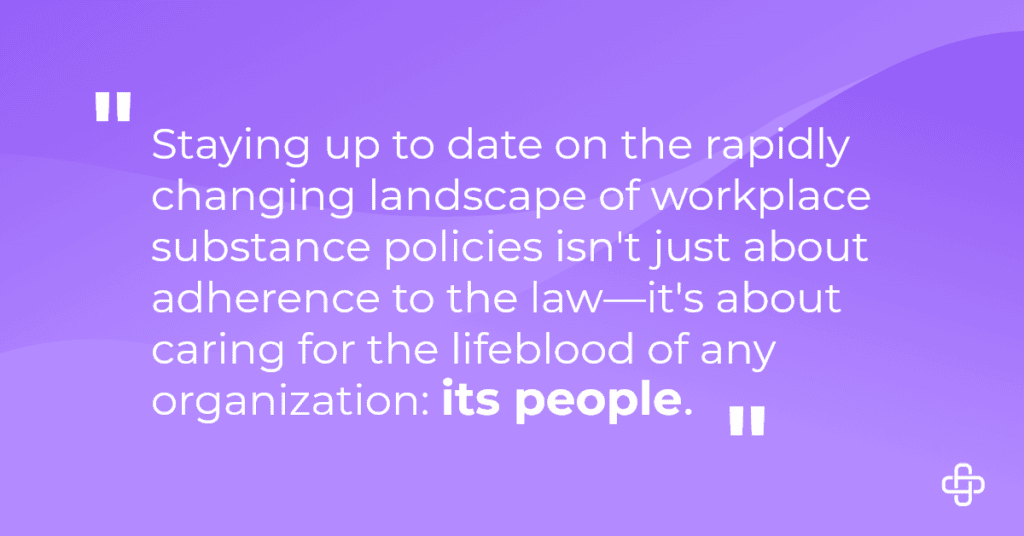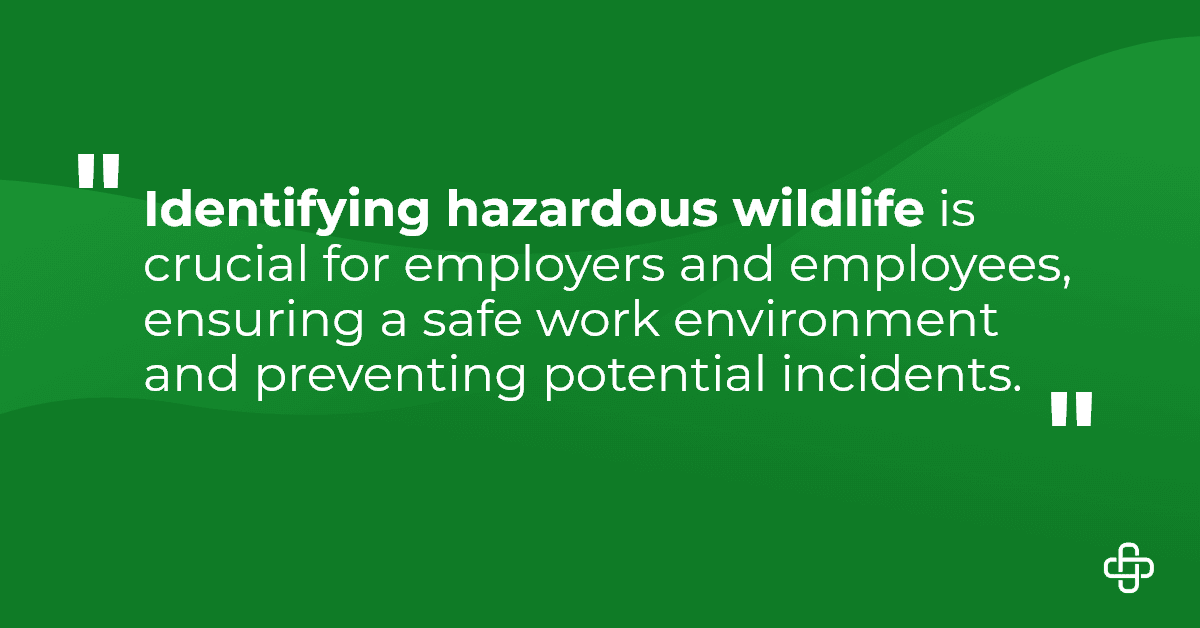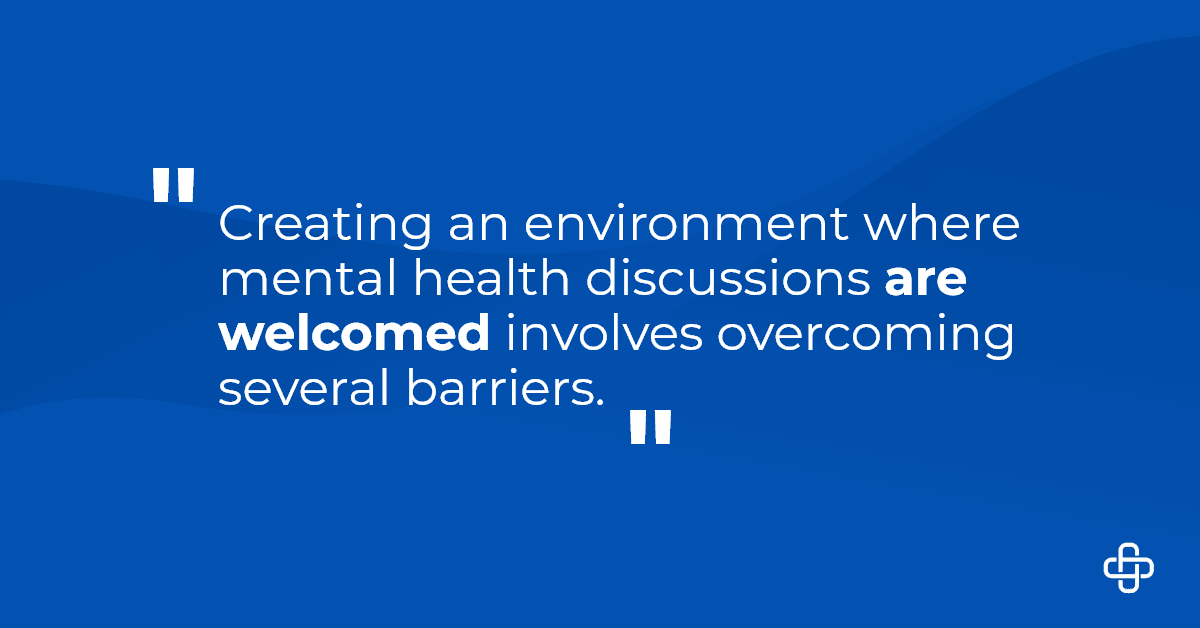In a world where workplace safety intersects with legal obligations and employee well-being, an employer’s role is integral to navigating the dynamics of effective workplace substance policies.
Understanding this complex terrain is more than a professional requirement; it ensures a healthy, safe, and productive working environment.
Workplace substance policies have always been vital in maintaining safety and efficiency. However, as society’s views on substance use evolve, so must the policies that govern them professionally.
From tackling addiction to integrating the legalization of substances like marijuana, today’s workplace substance policies must be adaptive, inclusive, and forward-thinking.
Current State of Workplace Substance Policies
Not long ago, workplace drug policies were focused on deterrence through random drug testing and zero-tolerance measures.
However, the limitations of such approaches—such as the risk of stigmatization and the failure to address underlying issues—are now widely recognized. The modern approach is increasingly holistic, aiming to balance regulation and support.
Legal Considerations
The legal landscape shifts continuously with changes in federal and state regulations. The growing patchwork of marijuana laws exemplifies the complexity of crafting policies that respect legal tenets without compromising workplace safety.
HR and legal departments must work to ensure company policies maintain compliance while reflecting the organization’s values and cultural ethos.
Understanding Legal Complexities
Employers must juggle several key legal considerations while sculpting their workplace substance policies. One primary example is the Americans with Disabilities Act (ADA), which provides protections for employees with disabilities, including certain substance abuse disorders.
However, the ADA does not protect an employee who is currently engaged in the illegal use of drugs. Additionally, the Occupational Safety and Health Administration‘s (OSHA) guidelines assert employers’ responsibility to maintain a safe work environment, potentially implicating substance use as a threat to uphold this requirement.
The conflicts between federal laws, which continue to classify marijuana as an illegal substance, and state laws, some of which permit its medicinal or recreational use, generate a particular legal dilemma for employers who must enforce policies that sufficiently navigate these discordances.
It is necessary for organizations to continually monitor these moving legal landscapes and carefully consider the legal ramifications of their substance policy decisions.
Emerging Trends
The current trend leans towards a keen focus on mental health and the overall well-being of employees, recognizing that substance use often correlates with workplace stress and mental health issues.
With legislation and social perspectives evolving, especially concerning marijuana, policies are being updated to reflect these realities. Moreover, the opioid crisis has brought about its own set of challenges, requiring policies that touch on prevention, education, and support rather than mere deterrence.
Emerging trends in workplace substance policies are informed by startling statistics revealing the issue’s depth. For instance, a recent study by the National Safety Council found that over 75% of employers have been affected by an employee’s opioid use, with only 17% feeling extremely well-prepared to handle it.
Additionally, research by the American Psychological Association indicates that around 40% of workers report their job as very or extremely stressful, which can link to higher rates of substance use. These figures underscore the need for comprehensive and empathetic substance policies that address root causes and promote employee well-being.
Best Practices for Implementing Updated Policies
To navigate these challenges, conducting comprehensive risk assessments becomes crucial. Policies should not be one-size-fits-all but instead tailored to the needs and characteristics of each organization and industry.
Clear communication channels and educational programs are essential in fostering understanding and compliance and building a proactive workplace culture centered around safety and health.
To ensure the successful updating of workplace substance policies, organizations should consider the following steps:
- Conduct a Policy Audit: Review existing substance policies to identify areas that may be outdated or non-compliant with current laws and societal norms.
- Engage Stakeholders: Include employees, management, legal advisors, and medical professionals in discussions to gather diverse perspectives and buy-in.
- Develop Clear Guidelines: Articulate the rationale behind policy changes and the consequences of violations in clear, unambiguous language.
- Offer Supportive Resources: Provide access to employee assistance programs (EAPs), counseling, and educational materials that address substance use and mental health.
- Train Management and HR Staff: Ensure that those responsible for policy enforcement understand the updates and can handle sensitive situations with discretion and empathy.
- Communicate Changes Effectively: Utilize various communication platforms to inform all employees about policy updates and the support available to them.
- Monitor and Evaluate: Implement regular checks to assess the effectiveness of the updated policies and make necessary adjustments for continuous improvement.
Staying up to date on the rapidly changing landscape of workplace substance policies isn’t just about adherence to the law—it’s about caring for the lifeblood of any organization: its people.
In this discussion of updated workplace substance policies, we hope to provide more than just insight—we aim to foster an ongoing dialogue that champions safe, healthy, and sound work environments for all.
Want to learn more about the evolving landscape of drug policies? Join Axiom Medical and Hound Labs for a webinar replay of Policy & Practice: Adapting to New Cannabis Norms, as the expert panel dives into substance abuse trends, marijuana testing and deterrence, and policy evolution.
Charli Pedersen works for Axiom Medical as their Content Marketing Specialist. She has her bachelor’s degree in English, Professional and Technical Writing and previous experience with creating content for businesses and non-profit organizations.













